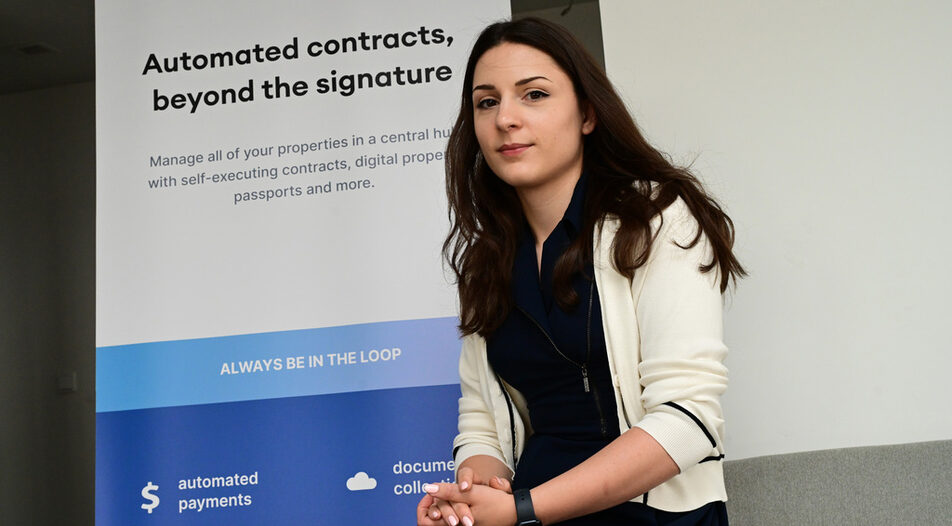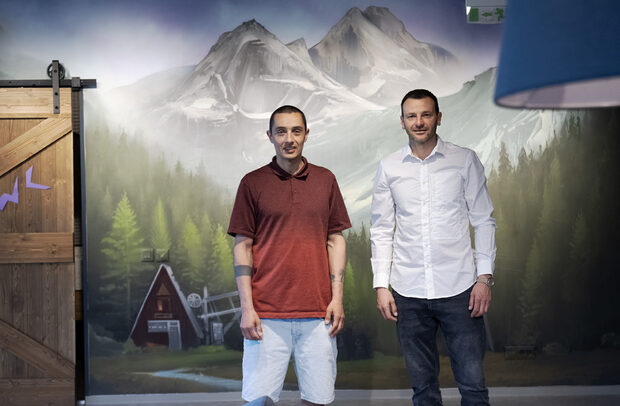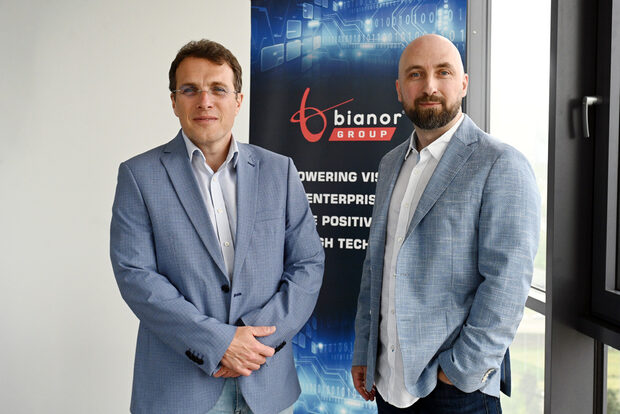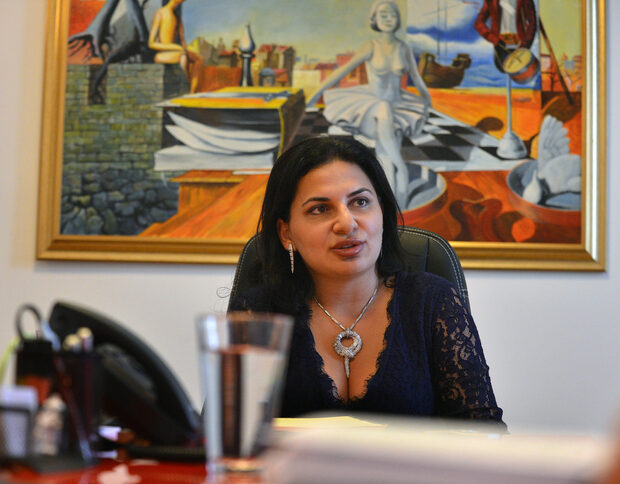An unwritten rule states that in Western Europe a contract takes six months to write and sign and then proceeds to be locked forever in a cupboard. In Bulgaria, meanwhile, it takes six days to write, yet is amended on the seventh. But even with the most standard contracts written and signed anywhere in the world, there often comes a point when something goes wrong. Then begins frantic re-reading of the document and the slow resolution of sometimes quite banal cases.
Kalina Tonkovska encountered this problem in 2022. She was a product manager at INDUSTRIA, a blockchain software solutions company. Her clients wanted to solve a problem, which was hindered by the need for amendments to their contract. "After 4-5 inquiries, we decided that this should become a separate product," says Tonkowska, which inspired her to create Programmatic a year later.
"Programmatic is a contract automation software with a focus on what happens after signing. There are many solutions on the market that automate contracts, such as DocuSign, but they generally focus on how to create and digitally sign a contract as quickly as possible. For us, the question is what happens after this contract is signed, especially when it comes to standardized contracts in large volume. Most of the problems come after the contract is signed," explains Tonkovska.
Programmatic is a spin-off from INDUSTRIA that develops fully digital contracts where everything can be tracked. It is registered in London, where the parent company is also based.
The problem is not the signature
Tonkovska says that the idea for Programmatic came entirely from the business practice of her previous position, as a product manager at INDUSTRIA. Large companies from Great Britain would ask whether it was possible to develop automatic contracts, where payments and compliance with individual clauses were monitored. It turns out that there was no such solution on the market.
She adds that there are usually two problems with contracts. The first is that they are not written specifically enough and discrepancies quickly appear accordingly. This is not the specialty of Programmatic, which is entirely a technology company, not a law firm - although it works in partnership with such. The second problem is how to track events under an already written contract. Programmatic's focus is on clients in large industries, specifically those in real estate, where there are many contracts, many payments, and of course, many gaps.
"Let's say you manage real estate and you have eight thousand buildings where you have a huge number of contracts with standardized payments on different terms. You have to constantly monitor the events of these contracts. Right now it takes a hell of a lot of time, money and human resources. Despite this money and time, mistakes still happen, which sometimes cost millions," says Tonkovska.
The company's product is a cloud-based mobile and web application. The model should be entirely sales to other businesses - medium and large organizations that work with a large amount of standardized contracts that need to be followed. Like most software solutions these days, Programmatic is on a subscription basis.
Currently, in order for a company to use Programmatic, it needs to bring its ready-made standardized contracts into the application, and then the customers and the company agree on exactly what automations are needed in those contracts. "They can vary - we have a ready-made set of automations, but it can be adjusted. Then we migrate historical data, previous contracts, organization data and more," Tonkovska says, adding that the whole job takes between one and three weeks, but then saves the company 75% of costs and leads to 18% fewer problems with contract payments.
An angel investor
The separation of Programmatic from INDUSTRIA occurred when British business angel Richard Cleck invested in the former. He initially put in 100 thousand pounds and a few months later added another 100 thousand as bridge funding before the actual first investment round for Programmatic. "We are currently in the process of raising capital for our seed round, which will be around 600 thousand pounds. We have planned for two investors to enter," says Tonkovska.
When asked about the optimistic scenario in front of Programmatic, Tonkovska is quick to respond: "Let's become the next unicorn. Both jokingly and not jokingly." She adds that the "optimistic-realistic scenario" this year is for Programmatic to establish itself as a digital contracting company in real estate, which is its biggest target market right now. "After that, we have other verticals where we would like to impose the platform - healthcare and more specifically clinical research," she concludes.
An unwritten rule states that in Western Europe a contract takes six months to write and sign and then proceeds to be locked forever in a cupboard. In Bulgaria, meanwhile, it takes six days to write, yet is amended on the seventh. But even with the most standard contracts written and signed anywhere in the world, there often comes a point when something goes wrong. Then begins frantic re-reading of the document and the slow resolution of sometimes quite banal cases.
Kalina Tonkovska encountered this problem in 2022. She was a product manager at INDUSTRIA, a blockchain software solutions company. Her clients wanted to solve a problem, which was hindered by the need for amendments to their contract. "After 4-5 inquiries, we decided that this should become a separate product," says Tonkowska, which inspired her to create Programmatic a year later.












